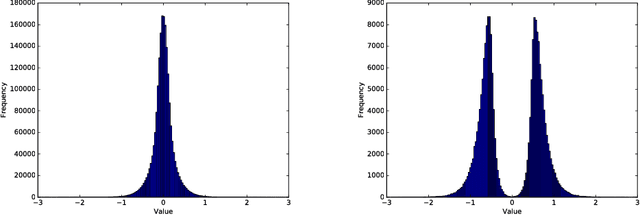Neural Networks Compression for Language Modeling
Paper and Code
Aug 20, 2017


In this paper, we consider several compression techniques for the language modeling problem based on recurrent neural networks (RNNs). It is known that conventional RNNs, e.g, LSTM-based networks in language modeling, are characterized with either high space complexity or substantial inference time. This problem is especially crucial for mobile applications, in which the constant interaction with the remote server is inappropriate. By using the Penn Treebank (PTB) dataset we compare pruning, quantization, low-rank factorization, tensor train decomposition for LSTM networks in terms of model size and suitability for fast inference.
* Keywords: LSTM, RNN, language modeling, low-rank factorization,
pruning, quantization. Published by Springer in the LNCS series, 7th
International Conference on Pattern Recognition and Machine Intelligence,
2017
 Add to Chrome
Add to Chrome Add to Firefox
Add to Firefox Add to Edge
Add to Edge